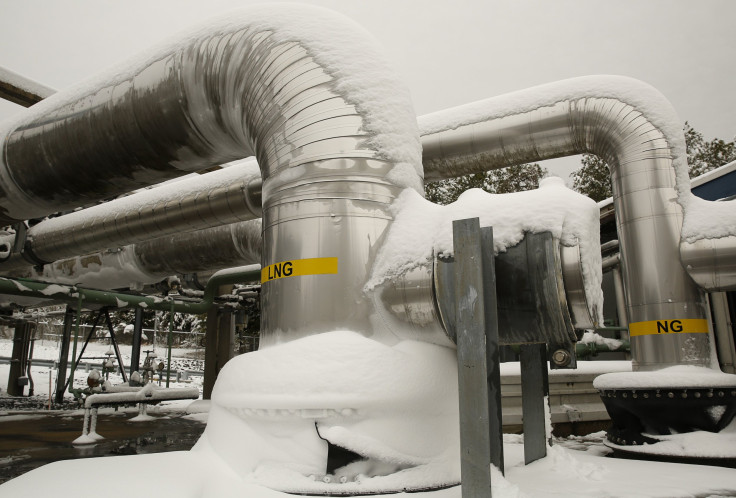Oregon LNG Export Terminal Wins Federal Permit Amid Rising Pressure to Export US Natural Gas To Europe, Asia

Federal energy officials on Thursday gave an Oregon project permission to ship liquefied natural gas around the world. The rare approval comes as the Obama administration faces growing pressure from natural gas proponents to expedite the flow of LNG exports – especially in the wake of Europe’s growing energy concerns from Russia.
Oregon LNG, the project’s developer, won a conditional permit from the Department of Energy to export the equivalent of 1.25 billion cubic feet of natural gas each day for 20 years. The permit allows the company to ship LNG to countries with which the United States doesn’t have a free trade agreement, including those in Europe, Asia and Latin America.
Six other projects have such conditional approvals from the DOE, but only one – Cheniere Energy, Inc. (NYSE:LNG)'s Sabine Pass LNG Terminal in Louisiana – has a final permit to export to non-free trade agreement nations. On Wednesday, an LNG export terminal planned in Freeport, Texas, was authorized by the Federal Energy Regulatory Commission to site, construct and operate the proposed facility at an existing plant.
“This has been a good week for those of us advocating for an expansion of our nation’s natural gas exports,” Sen. Lisa Murkowski, R-Alaska, said about the separate decisions in a statement. “Rising domestic production presents a golden opportunity to become a world leader in energy exports, while still meeting the full demand for gas at home.”
LNG is made by cooling natural gas until it becomes a clear, colorless liquid. It is used primarily to heat homes or generate electricity, though it can also be an alternative transportation fuel. As a liquid, LNG takes up much less space than traditional natural gas and is therefore easier to transport and store.
Much of the world’s LNG today comes from countries like Qatar, Australia, Malaysia and Indonesia. With the recent boom in U.S. natural gas production, spurred by the discovery of vast shale deposits and drilling techniques like fracking, American companies are eager to get in the game. That’s because by 2030, global demand for LNG is expected to double 2012 levels of about 250 million metric tons, according to Ernst & Young LLP.
Japan, South Korea and Taiwan, and increasingly China and India, will account for most of that demand as energy consumption rises along with the population. Some of it, however, will come from the European Union as it aims to reduce its reliance on Russian natural gas suppiles, which today account for a third of Europe’s gas consumption. U.S. Energy Secretary Ernest Moniz said in May that U.S. LNG exports could soon help to substitute shipments from Russia’s state-owned Gazprom OAO (MCX:GAZP). “The expectation is that the United States will become a substantial natural gas exporter towards the end of this decade,” Moniz said after participating in the G-7 energy summit, Bloomberg News reported at the time.
America still has a long way to go before that happens. Only one LNG export facility is currently in operation: ConocoPhillips (NYSE:COP)'s Kenai LNG Terminal near Anchorage, Alaska, which ships fuel mainly to Japan. The Sabine Pass facility in Louisiana isn’t expected to start exporting LNG until the end of 2015, and it could take another year before the Oregon facility that won the export permit completes the full approval process.
The LNG export movement also faces stiff opposition from environmental groups like the Sierra Club, which argues that the energy-intensive liquefaction process will release harmful greenhouse gas emissions as well as cause air and water pollution. The Sierra Club is suing or has sued to block several of the proposed export projects, including the Freeport, Texas, facility and Dominion Resources Inc. (NYSE:D)'s Cove Point plant in Maryland.
“Exporting natural gas would increase fracking and carbon emissions, put sensitive ecological areas at risk, and do nothing to address our country's energy challenges,” according to the Sierra Club’s Beyond Natural Gas campaign website.
© Copyright IBTimes 2024. All rights reserved.




















